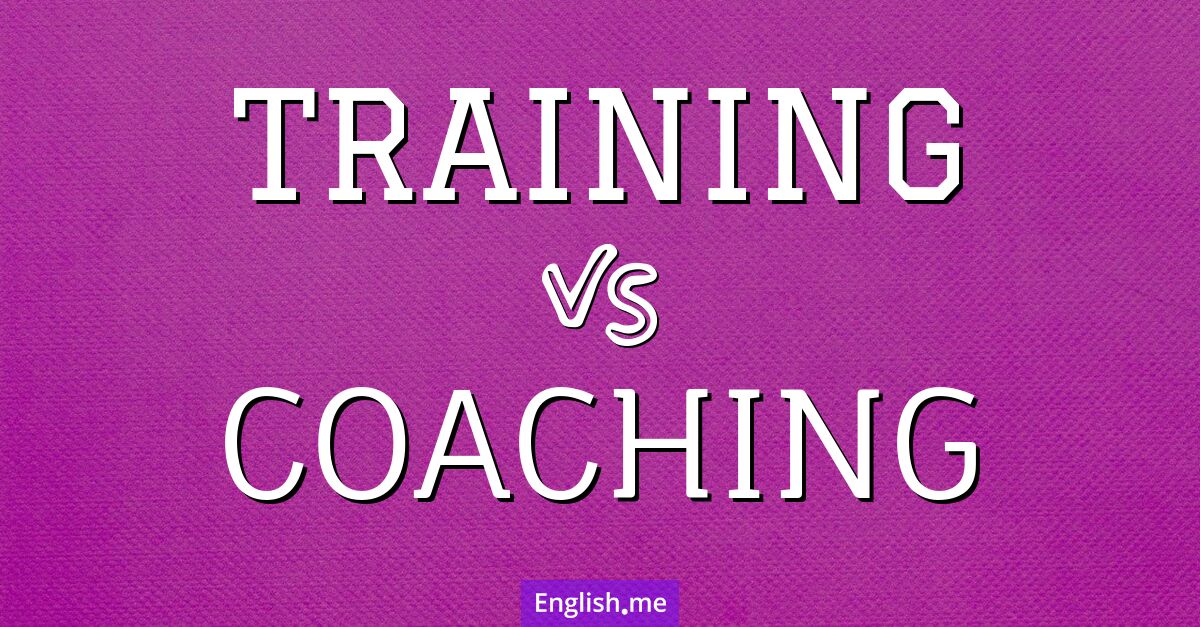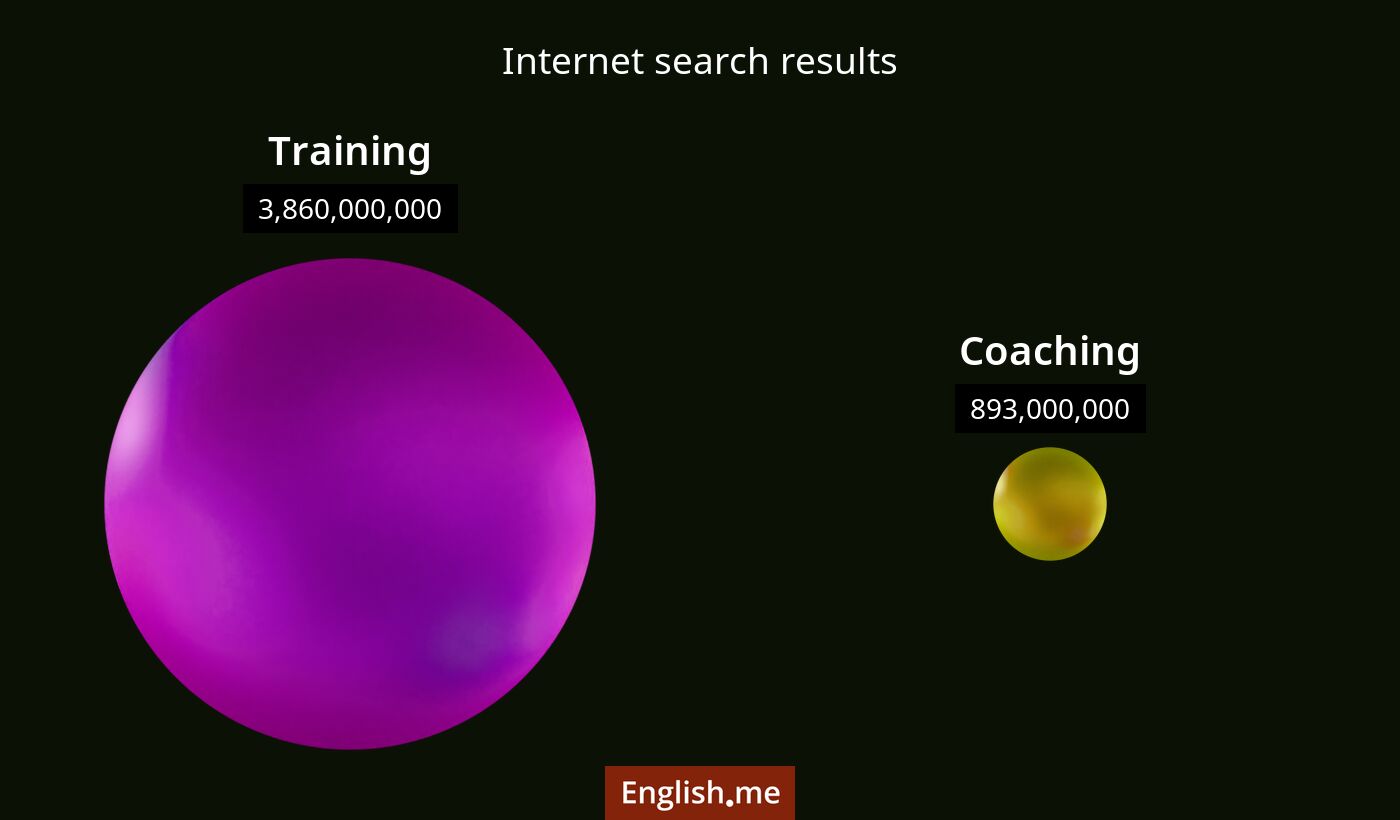Guiding paths: exploring "training" vs. "coaching"
Reviewed and edited by  Lloyd Cooper 05/11/2024, 18:17
Lloyd Cooper 05/11/2024, 18:17
English.me team member

 What is similar?
What is similar?
Both involve a process of improving skills or performance through instruction, guidance, and practice. They aim to help individuals or groups develop abilities in specific areas.
 What is different?
What is different?
Training is typically more structured, focusing on specific skills or knowledge transfer through courses or modules, while coaching is usually more personalized and dynamic, focusing on developing potential and addressing individual goals or challenges.
 Which one is more common?
Which one is more common?

 Examples of usage
Examples of usage
Training- The new employees will undergo training before starting their jobs.
- Training programs are essential for skill development.
- She attended a training session on leadership skills.
- The athlete credits his success to his coach's effective coaching.
- Coaching involves helping individuals achieve their personal best.
- She received coaching to improve her public speaking skills.

 English
English español
español française
française italiano
italiano deutsche
deutsche 日本語
日本語 polski
polski česky
česky svenska
svenska Türkçe
Türkçe Nederlands
Nederlands